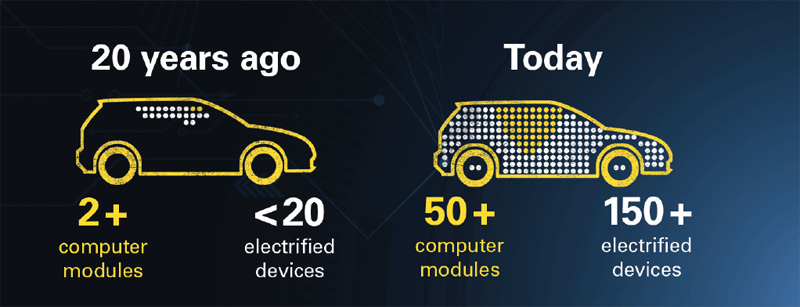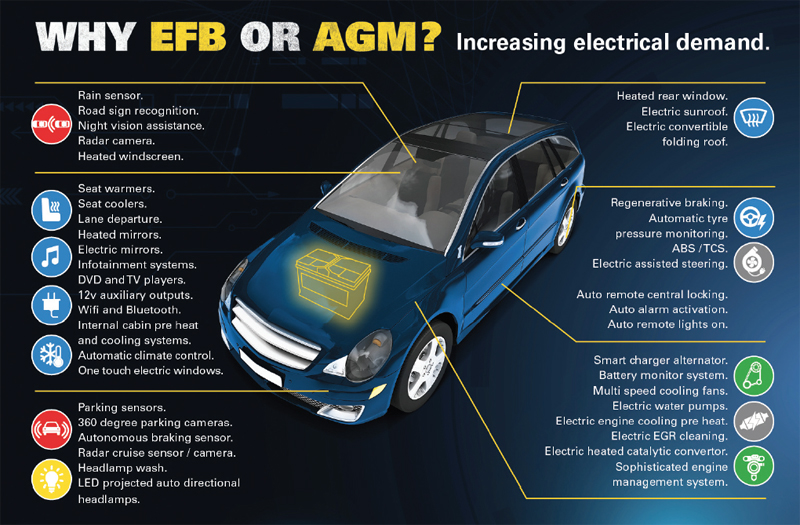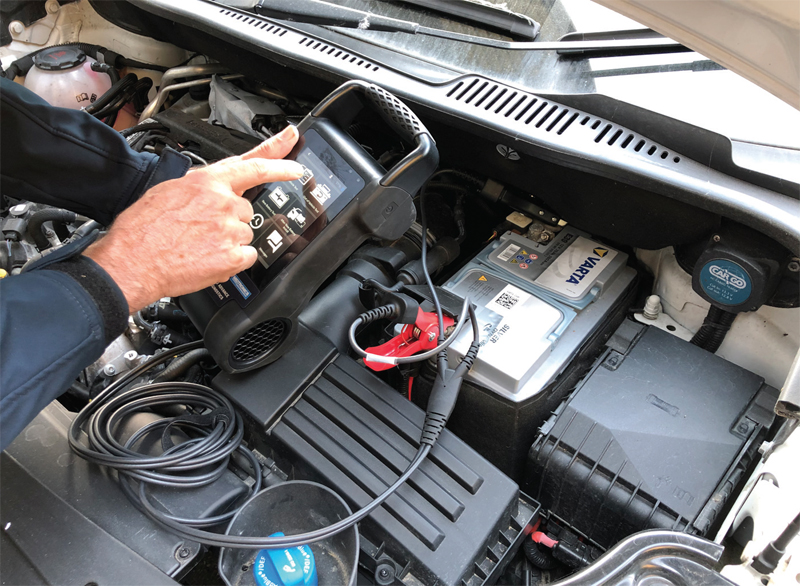
After a tough year for car batteries, Andy Cook, Technical Representative at Varta, discusses the importance of keeping on top of battery maintenance.
The battery experts at Varta are recommending that technicians check the status of all car batteries entering the workshop. This is now more important than ever, as so many cars have not been used as regularly as they normally would have over the last year.
Most private vehicles clocked up fewer miles in 2020 due to COVID-19 lockdown restrictions and a drop in commuter journeys. As a result, batteries faced major challenges last year. With the new 2021 lockdown implemented in early January, this looks set to continue.
To add to this, there was some extensive warmer weather early in 2020, and then some very hot temperatures in August. This warm weather accelerates the degradation of the battery’s health, and so there are lots of cars out there with a weak battery, unbeknownst to their owners.

Rising demand
Many motor factors have reported an upswing in demand for batteries, as lots of these weak batteries have begun to fail and require replacing. “The demand from the workshops for batteries has definitely increased; we saw from about May 2020 a higher number of orders from our customers year-on-year, and this has continued throughout 2020, with early orders for 2021 remaining higher than we would typically expect,” commented a spokesperson from a Varta distribution partner.
Andy Cook, Technical Representative at Varta, added, “Lots of cars have been stood still for months on end, therefore the alternator has not had a chance to recharge the battery. This, along with a hot spring/summer, has led to many batteries failing and leaving people stranded, particularly over the winter months where cold weather means the battery has to work harder to start the engine.
Varta is therefore advising that technicians should use a battery tester to determine if the battery is in a good state of health or whether it needs attention. With over a third of vehicles now having a start-stop system, it’s vital that a workshop has an up-to-date tester that can also accurately test Absorbent Glass Mat (AGM) and Enhanced Flooded Batteries (EFB). If it’s an older tester that doesn’t have the capabilities to test AGM or EFB batteries, then it’s worth upgrading, otherwise the test results will likely be inaccurate.
Andy continued, “It shouldn’t take long to complete a battery test – not much longer than five minutes – but by explaining the results to the customer, you are giving them peace of mind that the battery is in working order, or advising that it might be time for a replacement. By doing this, you’re ensuring they have a functioning battery and will not be left stuck out in the cold due to battery failure.”
Batteries face greater demands than ever before, as they have to serve increasingly complex and power-hungry car electronics. Whereas digital dashboards, inbuilt screens and parking cameras used to be limited to high-end vehicles, they are now commonplace on even entry-level models, all placing additional strain on the battery. Andy added, “Many drivers are also plugging in their mobile devices to charge them whilst on the move, again drawing power from the vehicle. This is why it’s paramount to ensure the battery is in a condition to support all the comfort and safety features; it’s the heart of the car.”

Taking advantage
As highlighted by a recent GiPA study, the UK has an ageing car parc; there is now a greater number of cars over 13 years old on UK roads, cars in which the battery has either never been changed or was changed a long time ago. It is unlikely this landscape will change in the short term, with many car owners postponing plans to buy a new car due to the uncertain economic situation. As reported by BBC News in early January, new car registrations fell to their lowest in 30 years in 2020, which was due to a combination of closed showrooms and a lack of buyer confidence due to the pandemic and Brexit.
As part of its Back To Better campaign, Varta has been highlighting that now is the time for a workshop to implement a test every battery process if they haven’t already. 2020 was a challenging year for batteries, but with an ageing car parc, there is no better time for garages to generate revenue by ensuring that batteries that need replacing are dealt with. Alongside the obvious direct financial gain, this will also keep customers happy in the knowledge that the service they received was thorough and that they have been kept on the road.
Andy concluded, “Testing batteries isn’t all about profiteering, it’s about offering great customer satisfaction and ensuring their car will start when they most need it to. This then adds to customer retention.”
Motor factor staff can help their garage customers by reinforcing the need for regular battery testing and offering advice on a battery tester that caters for start-stop vehicles, as over 35% of vehicles on UK roads now have a start-stop system and require AGM or EFB batteries. By ensuring the workshop trade is equipped with an up-to-date tester, they can then test every battery, whether it’s for start-stop or conventional vehicles.

Partner Portal
The Varta Partner Portal provides assistance to factor staff and technicians; the online platform uses original equipment information to help identify the correct battery for every vehicle, and also includes step-by-step fitting instructions.
Access to the portal is available via all internet-enabled devices: after a quick one-off registration, each branch or workshop employee has free and unlimited access, so you can ensure the correct battery is recommended and installed in the quickest time possible.






![The [M]enable mental health movement explained](https://pmfmag.co.uk/wp-content/uploads/2024/03/Menable-mental-health-165x109.jpg)
